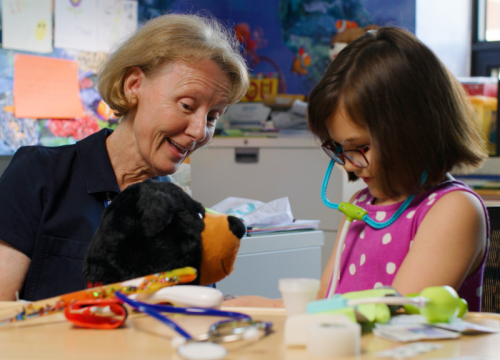
Having a good night’s sleep is vital for a child’s well-being. But as schools vary their schedules to ensure the safety of students and staff due to the COVID-19 pandemic, the inconsistent routine is causing many children to experience sleep issues.
Parents are reporting that virtual learning has led to their children sleeping in too late, feeling tired during the day, and not being able to focus on their schoolwork at home. There’s also been an increase in the incidence and severity of hyperactivity, insomnia, anxiety, and depression in children, especially adolescents.
So, how can you get your child back on track? Below is some helpful advice, based on common questions that parents often ask in my office.
How important is a consistent sleep schedule?
It’s very important for children to go to bed at the same time every night and wake up at the same time every day — even on weekends and holidays! Keeping a consistent sleep pattern will allow them to easily transition between virtual and in-person learning. This will also help to keep them active during the day, both for their classes and for socializing with family outside of class.
How much sleep does my child need?
The American Academy of Sleep recommends that infants get 12 to 16 hours of sleep; children age 1 to 3 get 11 to 14 hours of sleep; children age 3 to 5 years get 10 to 13 hours of sleep; children 6 to 12 get 9 to 12 hours of sleep; and children age 13 to 18 get 8 to 10 hours of sleep.
How can I help my child to unwind at bedtime?
Activities such as reading a book or listening to soothing music can help children relax at bedtime. It is also helpful to make sure the bedroom is quiet, dark, and set to a comfortable temperature. If possible, the bed should be used for sleep only — no video vgames, watching TV, etc.
Is it okay to have electronic devices in the bedroom?
You should definitely keep computers, tablets, and TVs out of the bedroom. Blue light affects sleep, and children should only use these devices for up to two hours a day. This is very challenging if they are in a virtual classroom all day. If possible, try to keep them off electronic devices once the school day is over. In addition, avoid any use of these devices for a least 1 to 2 hours before bedtime.
What if my child is hungry right before bedtime?
You should definitely try to make sure that your child does not eat a large meal before bedtime, but it is also important that they do not go to sleep feeling hungry. If your child is hungry after dinner, they should eat a light, healthy snack.
What if my child is thirsty at bedtime?
A small drink is okay, but it is definitely best to avoid having them drink too much right before bed. Limiting your child’s fluid intake around bedtime decreases the chance of them needing to use the bathroom during the night, disrupting their sleep.
Will exercise help my child sleep at night?
Yes! Daily exercise helps to improve the quality and duration of sleep. If possible, encourage your child to exercise during the day.

















